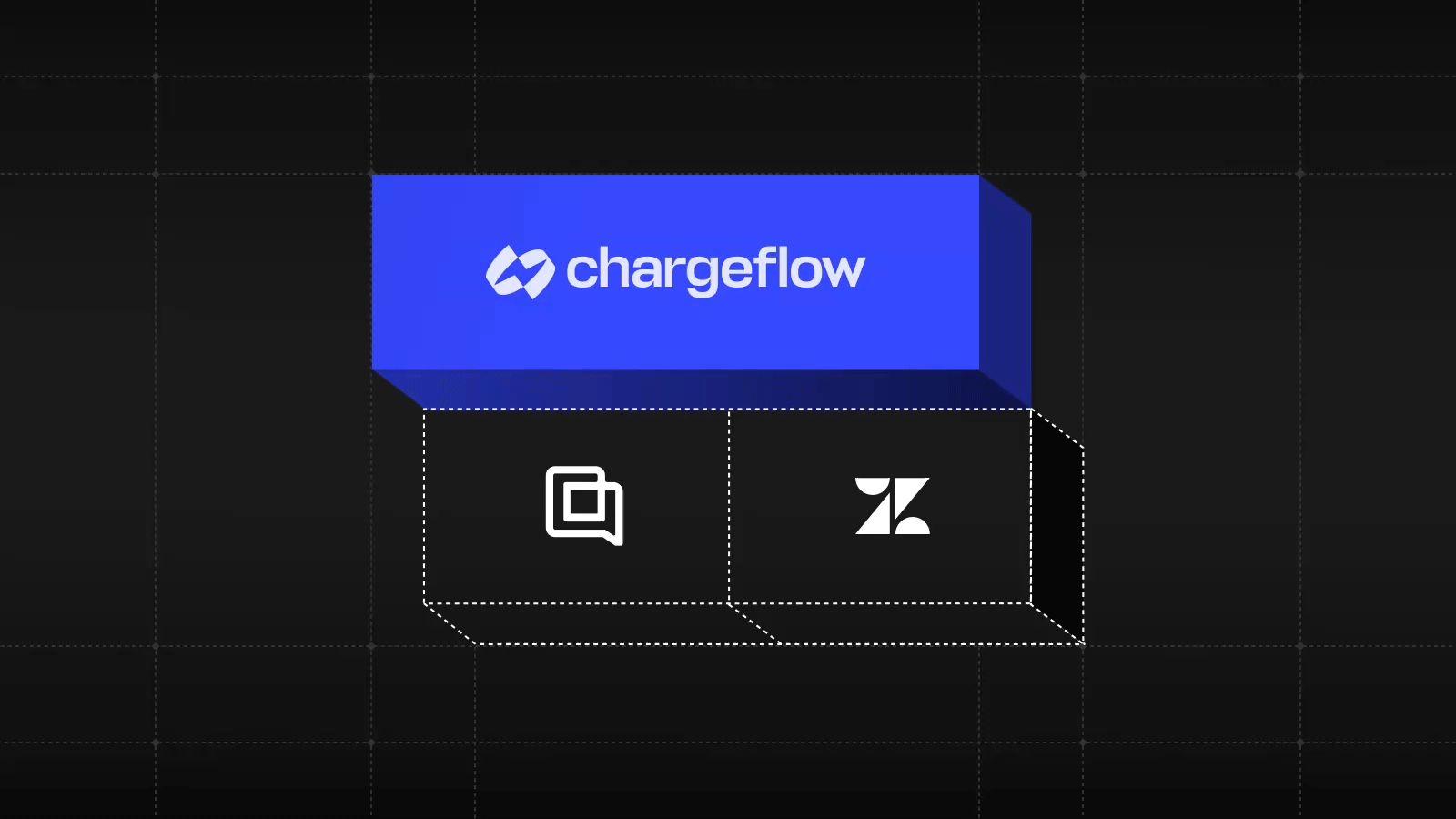What is Chargeback Fraud? Complete Guide of Store Owners

Chargebacks?
No longer your problem.
Recover 4x more chargebacks and prevent up to 90% of incoming ones, powered by AI and a global network of 15,000 merchants.
Prevent chargeback fraud and safeguard your business with our guide for merchants. Discover effective prevention strategies and solutions.
Chargeback fraud is a growing concern for merchants in today's digital age. It occurs when a customer disputes a charge made to their credit or debit card, resulting in a chargeback. However, in some cases, customers may dispute charges they made willingly, leading to fraudulent chargebacks.
Chargeback fraud can have a significant impact on merchants, both financially and operationally. Merchants need to understand the nature of chargeback fraud, its impact, and ways to prevent it to avoid losses and reputational damage.
This article provides a comprehensive guide to chargeback fraud for merchants in 2023. We will explore the different types of chargeback fraud, their impact on merchants, and ways to prevent them. Additionally, we will discuss the legal framework surrounding chargeback fraud, the role of payment processing companies, and real-life case studies to illustrate the consequences of chargeback fraud.
As a merchant, it is crucial to understand chargeback fraud to protect your business from fraudulent chargebacks. Therefore, we invite you to read on to learn more about this critical topic.
Chargeback Fraud
Chargeback fraud is a type of fraud that occurs when a customer makes a purchase from a merchant and then disputes the charge with their credit card issuer or bank, resulting in the merchant losing the sale and incurring additional fees.
Chargeback fraud can occur for various reasons, such as a customer not recognizing the transaction, forgetting they made the purchase, or intentionally disputing the charge to obtain a refund while keeping the merchandise or service they received.
This type of fraud can be costly for merchants, as they may lose revenue, be required to pay chargeback fees, and face damage to their reputation. Additionally, merchants may be required to provide evidence to dispute the charge, which can be time-consuming and costly.
To protect themselves from chargeback fraud, merchants can implement fraud detection and prevention tools, such as address verification systems and card verification codes, which can help to identify suspicious transactions before they are processed.
Merchants can also provide detailed product and service information to customers, implement clear and transparent billing practices, and offer excellent customer service to reduce the risk of chargeback fraud.
If a merchant does receive a chargeback, it's important to respond promptly and provide evidence to dispute the claim. Merchants can work with their payment processor or acquiring bank to resolve the dispute and minimize the impact on their business.
Types of chargeback fraud
Chargebacks can be a costly headache for merchants, especially when fraud is involved. Fraudulent chargebacks can come in different forms, each with its unique characteristics and challenges. Here are the three main types of chargeback fraud that merchants should be aware of.
1. Friendly fraud
This type of chargeback fraud occurs when a customer disputes a legitimate transaction with their issuing bank, claiming that the purchase was unauthorized or that the merchant did not deliver the goods or services as promised.
In reality, the customer may have received the product or service but simply decided they no longer want to pay for it, or they may be trying to scam the merchant for a refund. Friendly fraud can be difficult to detect and prevent because the transaction initially appears legitimate, and the customer often provides no evidence to support their claim.
Merchants can protect themselves from friendly fraud by keeping detailed records of transactions, implementing clear refund and return policies, and providing excellent customer service to address any concerns before they escalate to chargebacks.
2. Criminal fraud
Criminal fraud occurs when a fraudster steals a customer's payment information, makes unauthorized purchases, and then files a chargeback to get their money back. Criminal fraud can be more difficult for merchants to prevent, as it often involves sophisticated tactics such as phishing scams or malware. Merchants can reduce the risk of criminal fraud by implementing secure payment processing systems, using fraud detection tools, and educating customers about online security risks.
3. Merchant fraud
In some cases, the merchant may be responsible for chargeback fraud. This can occur when the merchant intentionally or unintentionally misrepresents the product or service, fails to deliver the promised goods or services, or engages in other deceptive practices. Merchant fraud can be difficult to detect and prevent, but merchants can protect themselves by providing clear and accurate product descriptions, fulfilling orders promptly, and providing excellent customer service to address any complaints or issues.
How does chargeback fraud work?
The fraudster will typically claim that the merchandise or services were never received or were unsatisfactory, or that the card was used fraudulently without their consent. As a result, the bank or credit card company will refund the customer's money and charge back the amount to the merchant.
Chargeback fraud can be committed by either the customer or a third party. For example, a fraudster may steal someone's credit card information and use it to make a purchase online, then dispute the charge to get their money back. Alternatively, a customer may make a legitimate purchase and then dispute the charge after receiving the merchandise, claiming that it was not what they expected or that it was damaged.
In either case, chargeback fraud can be costly for merchants, as they may not only lose the sale but also incur chargeback fees and potentially lose their merchant account if the chargeback rate exceeds the acceptable threshold.
Impact of Chargeback Fraud on Merchants
While chargebacks were originally designed to protect consumers from fraudulent merchants, chargeback fraud has become a growing concern for merchants due to its negative impact on their finances, operations, and reputation.
1. Financial impact
Chargeback fraud can have a significant financial impact on merchants. When a chargeback is initiated, the merchant not only loses the revenue from the original transaction but also incurs additional fees and penalties from their payment processor.
In addition, merchants may be required to provide evidence to dispute the chargeback, which can be time-consuming and costly. If a merchant experiences a high number of chargebacks, they may also be subject to increased fees or even lose their ability to accept certain payment methods altogether.
2. Operational impact
Chargeback fraud can also have a significant operational impact on merchants. When a chargeback is initiated, the merchant must investigate the dispute, gather evidence, and respond to the chargeback within a specified timeframe.
This process can be time-consuming and may require the merchant to divert resources away from other business operations. In addition, if a merchant experiences a high number of chargebacks, they may be required to implement additional fraud prevention measures or face increased scrutiny from their payment processor.
3. Reputational impact
Chargeback fraud can also have a negative impact on a merchant's reputation. Consumers who initiate chargebacks may leave negative reviews or comments online, which can harm the merchant's reputation and lead to a loss of business.
In addition, merchants who are unable to effectively manage chargeback fraud may be seen as untrustworthy or unreliable, which can make it difficult to attract and retain customers.
Chargeback Fraud Management
Chargeback fraud is a growing problem for merchants, but there are several steps they can take to manage this risk effectively.
1. Identifying chargeback fraud
Merchants can identify chargeback fraud by monitoring transaction patterns, reviewing order details, and analyzing customer behavior. Chargeback fraud often involves high-value purchases, multiple transactions from the same customer, or purchases made with stolen credit cards. Merchants should also be aware of common chargeback fraud tactics, such as friendly fraud or false claims of non-delivery or defective products.
2. Responding to chargebacks
When a chargeback is initiated, merchants should respond promptly and provide evidence to dispute the claim. This evidence can include order details, shipping and tracking information, and customer communication. Merchants should also ensure that their customer service policies are clear and well-communicated to avoid misunderstandings or disputes.
3. Dispute resolution process
If a chargeback dispute cannot be resolved through direct communication with the customer or their bank, merchants can utilize the dispute resolution process offered by their payment processor. This process typically involves providing evidence to support the merchant's case, which is reviewed by an independent third-party mediator. Merchants should be prepared to provide detailed documentation and be responsive throughout the dispute resolution process.
4. Chargeback management best practices
- To effectively manage chargeback fraud, merchants should implement best practices such as:
- Keeping accurate records of all transactions and customer communication.
- Implementing fraud prevention measures such as address verification, CVV verification, and transaction monitoring.
- Providing clear and detailed product descriptions and shipping policies to avoid misunderstandings.
- Offering excellent customer service to prevent disputes from escalating to chargebacks.
- Continuously monitoring transaction patterns and customer behavior to identify potential fraud.
Chargeback Fraud and eCommerce
Chargeback fraud is a growing problem for eCommerce merchants, but there are several steps they can take to prevent and manage this risk effectively.
1. Trends and statistics
According to a recent report, chargeback fraud is responsible for 81% of all payment fraud in eCommerce. This type of fraud is expected to increase by 14% annually, resulting in $25 billion in losses by 2024. Friendly fraud, where a customer disputes a charge without a valid reason, is also a growing concern for eCommerce merchants, accounting for 43% of all chargebacks.
2. Fraud prevention for eCommerce merchants
To prevent chargeback fraud, eCommerce merchants can implement several fraud prevention measures, such as:
- Using fraud prevention software: Merchants can use software that analyzes transaction data to identify potential fraud patterns and flag suspicious transactions.
- Implementing 3D Secure: 3D Secure is a payment authentication protocol that requires the customer to enter a password or other authentication method to complete a transaction. This helps prevent fraudulent transactions by verifying the customer's identity.
- Providing clear and detailed product descriptions: Merchants should ensure that their product descriptions are accurate and detailed to avoid misunderstandings or disputes with customers.
- Offering excellent customer service: Providing excellent customer service can help prevent disputes from escalating to chargebacks. Merchants should be responsive and helpful to customer inquiries and complaints.
3. Chargeback fraud prevention for specific industries
Some industries are more vulnerable to chargeback fraud than others. To prevent chargeback fraud, merchants in specific industries can take additional measures, such as:
- Travel industry: Merchants in the travel industry can implement a strict cancellation policy and require customers to provide identification when making reservations to prevent fraud.
- Digital goods industry: Merchants in the digital goods industry can implement a download tracking system and require customers to enter a valid email address to prevent fraud.
- Subscription-based industry: Merchants in the subscription-based industry can implement a notification system that alerts customers before a subscription renewal, allowing them to cancel or modify their subscriptions.
Chargeback Fraud Laws and Regulations
Chargeback fraud is a serious issue that can have legal and regulatory implications for both merchants and consumers. Understanding the legal framework for chargeback fraud, merchant rights, and responsibilities, consumer rights and protections, and data protection regulations is essential for managing the risks associated with this type of fraud.
1. Legal framework for chargeback fraud
Chargeback fraud falls under the jurisdiction of various laws and regulations, including consumer protection laws, fraud laws, and payment card industry regulations.
In the United States, chargeback fraud is regulated by the Fair Credit Billing Act (FCBA) and the Electronic Funds Transfer Act (EFTA), which provide consumer protection for disputed credit and debit card transactions.
Merchants must also comply with the Payment Card Industry Data Security Standards (PCI DSS), which provide guidelines for safeguarding sensitive cardholder information.
2. Merchant rights and responsibilities
Merchants have a responsibility to provide accurate product information, deliver goods and services as promised, and respond to customer complaints promptly and professionally. Merchants also have the right to dispute chargebacks and provide evidence to support their case.
However, merchants must comply with chargeback regulations and dispute resolution procedures established by their payment processors.
3. Consumer rights and protections
Consumers have the right to dispute unauthorized or fraudulent transactions, receive a refund or credit for disputed transactions, and protection from liability for unauthorized charges. However, consumers must also comply with chargeback regulations and provide evidence to support their case.
Consumers who engage in friendly fraud or abuse the chargeback system may be subject to legal or financial consequences.
4. Chargeback fraud and data protection regulations
Chargeback fraud involves the collection and use of sensitive personal and financial information, making it subject to data protection regulations such as the General Data Protection Regulation (GDPR) in the European Union and the California Consumer Privacy Act (CCPA) in the United States.
Merchants must comply with these regulations by implementing appropriate data security measures, obtaining customer consent for data collection and processing, and providing customers with access to their personal information upon request.
Chargeback Fraud and Payment Processing
Chargeback fraud is a major concern for payment processing companies, credit card companies, and merchants alike. Understanding how these entities are affected by chargeback fraud is essential for managing the risks associated with this type of fraud.
1. Payment processing companies and chargeback fraud
Payment processing companies are responsible for facilitating the flow of funds between merchants, consumers, and banks. As part of their role, payment processors are also responsible for managing chargeback disputes. Payment processing companies typically offer chargeback management services to merchants, including dispute resolution, chargeback prevention tools, and fraud detection services. Payment processing companies may also have chargeback thresholds and penalties for merchants who exceed a certain percentage of chargebacks.
2. Chargeback fraud and credit card companies
Credit card companies are responsible for issuing credit and debit cards, managing transaction processing, and providing fraud prevention services. Credit card companies are also responsible for managing chargeback disputes and typically offer chargeback management services to merchants, including dispute resolution and chargeback prevention tools.
Credit card companies may also have chargeback thresholds and penalties for merchants who exceed a certain percentage of chargebacks. In some cases, credit card companies may also offer chargeback insurance to merchants.
3. Chargeback fraud and alternative payment methods
Alternative payment methods, such as digital wallets, mobile payments, and bank transfers, are becoming increasingly popular among consumers. However, alternative payment methods may present unique challenges when it comes to managing chargeback fraud.
Some alternative payment methods may not have the same chargeback dispute resolution processes as credit cards, which can make it more difficult for merchants to dispute chargebacks. Additionally, some alternative payment methods may have different fraud prevention measures in place, which can impact the risk of chargeback fraud.
Final Thoughts on Chargeback Fraud
In conclusion, chargeback fraud is a serious concern for merchants in 2023. It not only causes financial losses but also impacts operational efficiency and damages brand reputation. To prevent chargeback fraud, merchants need to implement effective fraud prevention techniques and adopt best practices for chargeback management.
It is also important for merchants to stay informed about chargeback fraud laws and regulations and to work closely with payment processing companies to minimize risk.
While chargeback fraud prevention and management can be a complex and time-consuming process, merchants can now automate their chargeback issue and dispute management activities with Chargeflow.
Chargeflow is an AI-powered system that streamlines the chargeback management process, allowing merchants to focus on their core business operations. By leveraging Chargeflow elegant system and advanced analytics, merchants can prevent chargebacks and resolve disputes in a timely and efficient manner, thus minimizing financial losses and protecting their brand reputation.
If you're a merchant looking to protect your business from chargeback fraud, consider implementing Chargeflow today. With its cutting-edge technology and seamless integration, Chargeflow offers a reliable and effective solution for chargeback management, allowing you to focus on growing your business with confidence.

Chargebacks?
No longer your problem.
Recover 4x more chargebacks and prevent up to 90% of incoming ones, powered by AI and a global network of 15,000 merchants.






























.png)








